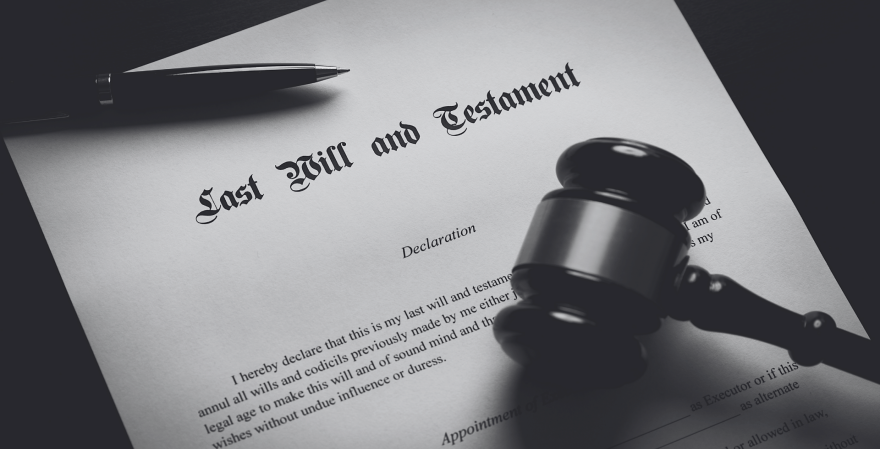UNDERSTANDING PROBATE

What is a Probate
A Probate has been defined under the Indian Succession Act, 1925 as follows:
‘Probate’ means the copy of a Will that is certified under the seal of a court of competent jurisdiction, with a grant of administration to the estate of the testator.
The person who makes a Will (referred to as the Testator), expresses how his wishes with regard to, among others, the manner of distribution of his assets/ estates be dealt with and executed after his death. In order to smoothen such distribution and to make it speedy and effective, the Testator appoints a certain person(s) who is/ are generally named in the Will. The person(s) so named to execute the Will, are called its Executor(s).
A Probate is a legal method or a process through which a Will is certified, under the seal of a court. A Probate establishes and authenticates the Will. A Probate is a conclusive proof of the fact that the Will was executed validly and is genuine and is the last Will of the deceased.
What Is a Probate?
A probate is a grant or certificate given by the high court of competent jurisdiction that serves as conclusive evidence that there are no suspicious circumstances like fraud or coercion, among others, surrounding the execution of the Will, and that the Will was duly executed by the testator (deceased), and attested by witness.
A probate is issued by the court, when a person dies testate i.e., having made a
Will.
Across the board there is a general sense of unawareness of what a Probate is all about. Often, many well educated and people in positions too seek to know as to the circumstances under which a Will is required to be Probated.
Under the Indian Succession Act, 1925, a Probate is mandatory when a Will is made in certain places like the erstwhile Presidencies of Bengal, Bombay and Madras (all these names are now changed) which were then under the rule of the Lieutenant- Governor of Bengal or within the local limits of the ordinary original civil jurisdiction of the High Courts of Judicature at Madras and Bombay. The provisions refer to the places as were known at the time of enactment of the Indian Succession Act, 1925. These can be understood to now mean or refer to the state of West Bengal and municipal limits of metropolitan cities of Chennai and Mumbai, respectively.
It may be interesting to note that a probate is mandatory if the Will is within the geographical limits of these places, even if the Will does not deal with any immovable property. Alternately, if the Will is made outside the geographic limits of the above places BUT includes among the list of assets certain immoveable property that is located within the geographic limits of these three places, it is advisable to get such a Will Probated in the place where the Will was executed or where the Testator was last residing. Such a “Probation” process authenticates the Will and will be a conclusive proof of the fact that the Will was executed validly and is genuine and is the last Will of the deceased. The entire distribution process will be smooth and accepted by every authority dealing with the transfer of such asset(s) to the beneficiary/ies.
However, generally unless covered by any of these three geographic jurisdictions, a probate of a Will is not mandatory. However, there is no restriction in law to get a probate of a Will, even if it is not mandatory. Once again, we may reiterate that obtaining a probate is advisable, in cases where there is a probability of the validity of the Will being contested in future on any ground and by anyone.
A probate ensures a seamless transfer of the assets to the legal heirs and/or beneficiaries of the deceased as stipulated in the Will. The probate authenticates that the Will is the last Will and testament of the Testator, and such a grant by the court naturally introduces an element of solemnity in the decision of the court regarding the wishes of the Testator and the authenticity of the Will.
It is a process under which the court ascertains and then determines as to whether the Will has been duly executed, whether the Testator at the relevant time was in a sound and disposing state of mind, and whether the Testator had understood the nature and effect of such a decision, and had affixed his signature to the document out of his free will and volition and that there was no undue influence on him to do so.
Thus, a probate issued by a court verifies and certifies the genuineness of the Will.
Who can seek a probate?
It is the Executor/s named in the Will who can seek a Probation of a Will. The Executor has to make an application for grant of a probate under the seal of the court, certifying the genuineness of the Will. In case there are more than one Executor, the probate can be granted to them together or as and when the application for Probate is made by any of them.
In case a person has died without a Will (intestate) or has not named an to administer his Will, then a Letter of Administration is required to be applied for through an appropriate court. A letter of Administration may also be sought for where the appointed Executor refuses (or is incapable) to function as such. These matters are covered under Sec 234, 223, 290 or 215 (depending on different matters relating to the deceased) of the Indian Succession Act 1924.
The District Judge, within whose jurisdiction any asset, movable or immovable of the deceased person, is situated or the deceased person had resided, immediately, before his death, shall have the jurisdiction to try, entertain and decide on such a Petition. There are certain court fees to be paid while filing an application for Letter of Administration.
An order issued by a competent Court upon an application for a letter of Administration (sanctioning certificate) grants the rights to a person to administer the estates of the deceased as per his Will.
SUCCESSION CERTIFICATE
Apart from a Probate (an order or certificate of a court) or a Letter of Administration issued by a court (which is an official court document issued for the purpose of giving authority to the person (to whom it is granted) to administer all the estate of the deceased person (there is yet another document which is issued by a court (a magistrate or a high court) to deal with the manner of distribution of the assets of a person who has died intestate. It is known as the SUCCESSIONCERTIFICATE.
A succession certificate, under the Indian Succession Act, is a document that gives authority to the person who obtains it, to represent the deceased for the purpose of collecting debts and securities due to him or payable in his name. Usually, in the absence of a Will, a succession certificate will be the key document through which the legal heirs can stake a claim to the assets of a deceased person.
It is important to note that under Sec 370 (2) of the Indian Succession Act 1925, a Succession Certificate cannot be issued with regard to assets or debts that are subject matter of a Probate application through another court (or the same court)
While a Probation is required to be sought for by the Executor, a Letter of Administration shall be sought for by a legal heir or any claimant who feels that he is entitled to a share in the estates of the deceased. However, a Succession certificate can be sought for only by the legal heirs of the deceased. It may be noted that a Letter of Administration can only be granted to those whose name is mentioned in the Will.
The Indian Limitation Act, 1963, does not prescribe a time period within which a petition for Probate or Letters of administration or Succession Certificate must be made after a person’s death. Therefore, the usual rule of three-year period is not strictly applicable to a petition for a grant of probate. However, the sooner the better as one is not sure of the twists and turns in any relationship between the legal heirs or the advent of new relationship status. Complexities may then arise and create delay in court decisions. Again, due to escalation in valuations over time on the related assets, the stamp duty/ court fee payable for such applications may also rise.
How to apply for a probate?
- The executor has to make an application (petition) to the court, for issue of a probate. The petition should be filed before a competent court. The pecuniary jurisdiction may need a higher court to issue the probate in case of high-value immovable assets through an advocate.
- The executor must pay the court fees applicable based on the value of the assets.
- The executor has to attach the original Will with the application.
- In the application, the executor has to mention the names and addresses of the legal heirs of the deceased, so that notice can be issued to them, before the Will is probated.
- The court generally requires the petitioners to establish the facts of death of the testator with proof, which is generally done with the help of a death certificate issued by the local authorities.
- The executors are also required to establish that the Will produced before the
- The petitioners are also required to establish that the submitted Will was validly executed by the testator.
Process followed by the court
After the application is submitted, it is verified and then, notices are issued to the legal heirs of the deceased about the fact of application for probate having been received by the court. A general notice is also published, giving an opportunity for raising any objections to the grant of the probate. In case no objections are received by the court, the probate is issued. In case the court receives objections to the issue of the probate, then, the application turns into a testamentary suit.
Cost of obtaining a Probate
Since the probate is granted by a high court, you have to pay a court fee, based on the value of the assets, which are subject matter of the petition. The court fee varies from state to state. In the state of Maharashtra, it is 2% to 7.5%, depending on the slabs, subject to a maximum of Rs 75,000. In addition to the court fee, you also have to bear the lawyer’s fees. The cost would be paid out of the estate of the deceased. It is better to seek legal opinion as to the costs applicable in your state.
Can a will be probated before death in India?
A Will cannot be probated before the death of the Testator (person making the Will). The Executor of the Will should file for a Probate upon the death of the Testator and submit a copy of the Testators death Certificate.
Does a Power of Attorney upset the validity of a Will?
A Power of Attorney is valid only during the lifetime of the person granting/issuing the PoA. Its validity lapses upon the death of the person who made the PoA. A Will on the other hand, becomes effective only upon the death of the Testator.





